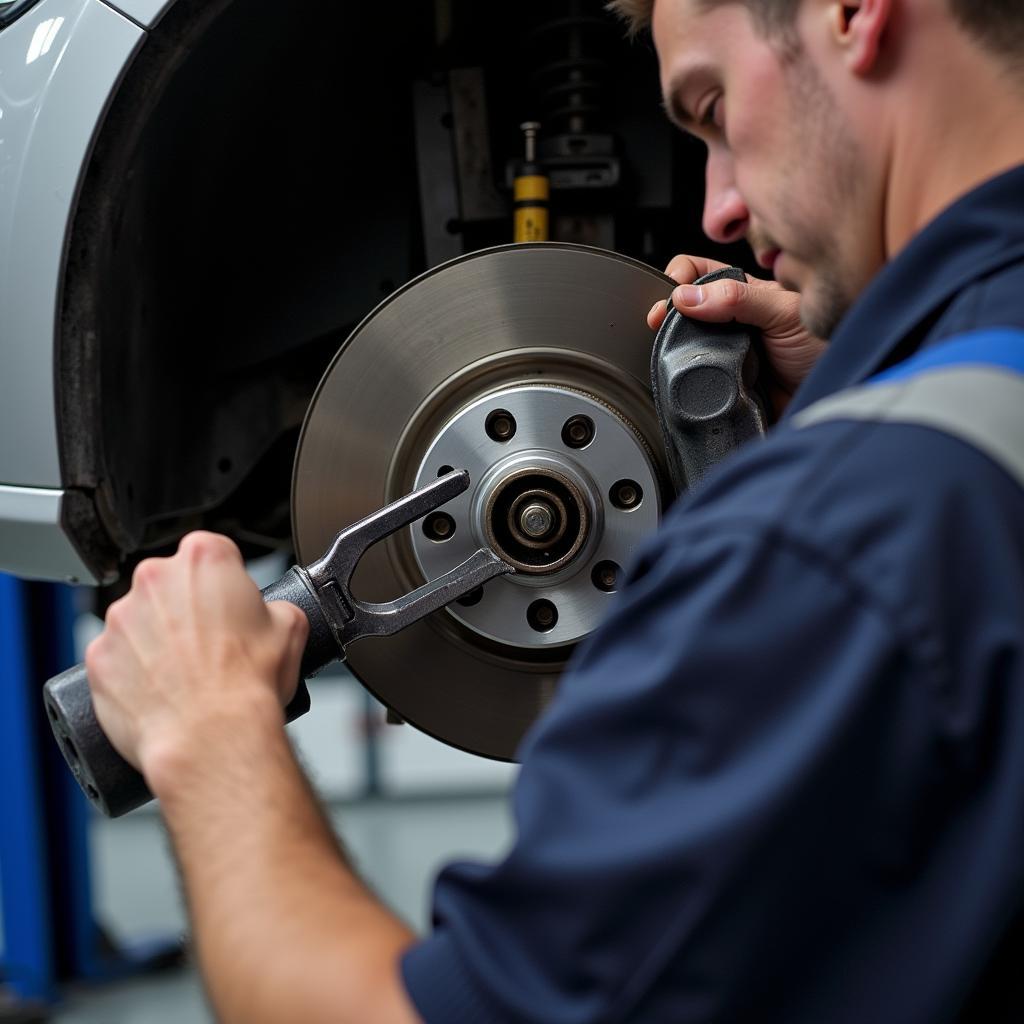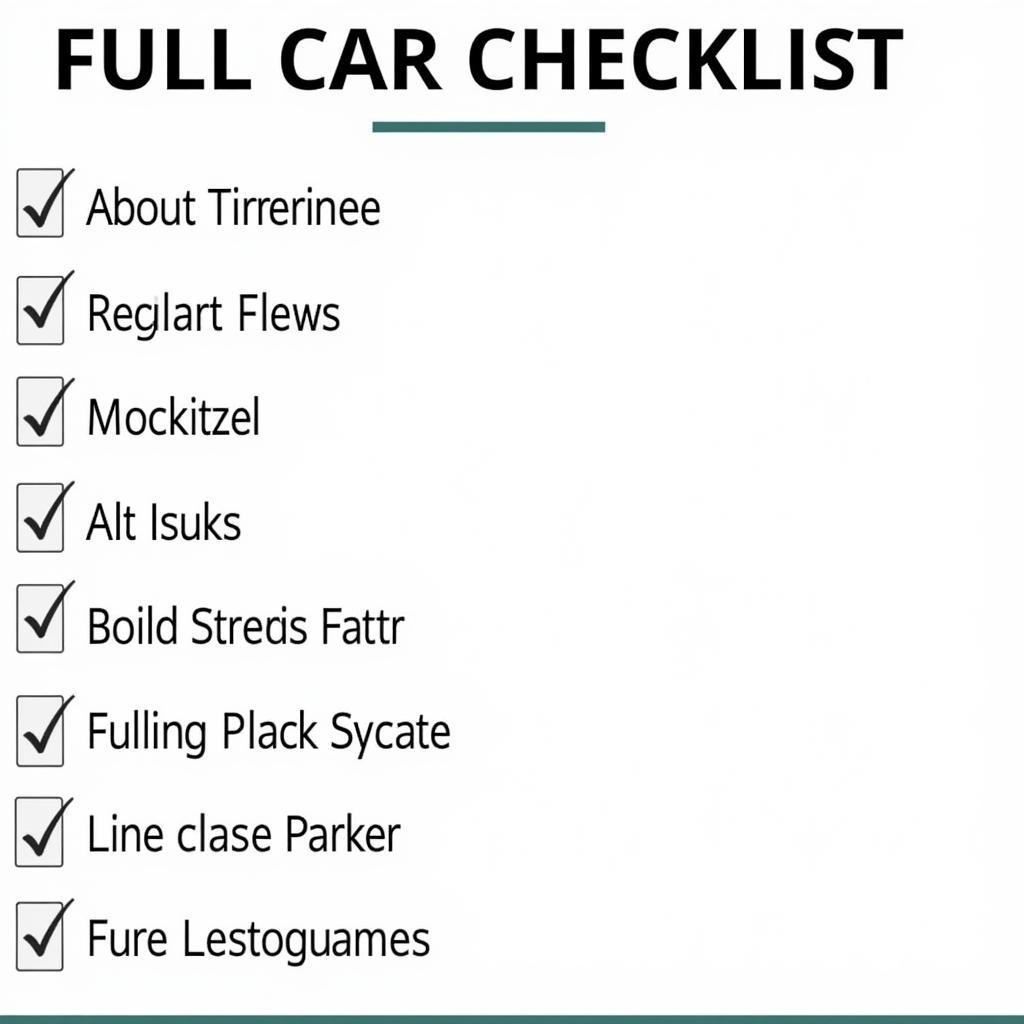What Should a Full Car Service Include?
Understanding what a full car service entails can be tricky. You want to ensure your vehicle is in tip-top shape, but with so many components, it’s hard to know what needs checking. This guide breaks down everything included in a full car service, empowering you to make informed decisions about your car’s maintenance.
What Does a Full Car Service Cover?
A full car service goes beyond a basic oil change. It’s a comprehensive inspection and maintenance procedure covering essential areas of your vehicle. While specific services may vary slightly depending on the mechanic and your car model, here’s a general overview:
Engine and Drivetrain
- Oil and filter change: Essential for engine lubrication and performance.
- Air filter replacement: Ensures clean air flow for efficient combustion.
- Spark plug inspection/replacement: Vital for ignition and fuel efficiency.
- Transmission fluid check/change: Keeps your gears shifting smoothly.
- Coolant check/top-up: Prevents engine overheating.
Brakes and Suspension
- Brake pad/rotor inspection: Ensures optimal stopping power and safety.
- Brake fluid check/change: Maintains brake system responsiveness.
- Suspension check: Looks for worn-out shocks, struts, and other components.
- Steering system inspection: Checks for leaks and proper alignment.
 Mechanic Inspecting Car Brakes
Mechanic Inspecting Car Brakes
Lights and Electrical
- Battery test: Determines the health and charge of your battery.
- Headlight, taillight, and signal light check: Ensures all lights function correctly.
- Wiring and electrical system inspection: Checks for potential issues.
Other Essential Checks
- Tire pressure and tread depth check: Impacts safety, fuel efficiency, and tire lifespan.
- Fluid level checks (power steering, windshield washer): Ensures proper system function.
- Belts and hoses inspection: Identifies signs of wear and tear.
- Exhaust system check: Looks for leaks or damage that can impact performance and safety.
- Diagnostic scan: Detects any underlying electronic issues.
“Many car owners underestimate the importance of a full car service. It’s not just about fixing existing problems; it’s about preventing future ones. Regular, comprehensive checkups can save you money and stress in the long run.” – John Smith, Senior Automotive Technician at CarServiceOnline
Benefits of a Full Car Service
Opting for a full car service offers numerous benefits:
- Increased safety: Ensuring your car’s components function correctly is paramount for safe driving.
- Improved performance: A well-maintained car performs better, offering smoother handling and better fuel efficiency.
- Extended lifespan: Regular servicing helps identify and address minor issues before they escalate into major problems, extending your car’s lifespan.
- Higher resale value: A well-maintained car with a documented service history commands a higher resale value.
 Car Service Checklist
Car Service Checklist
How Often Should You Get a Full Car Service?
As a general rule, scheduling a full car service every 12,000 miles or 12 months is recommended. However, referring to your owner’s manual for manufacturer-specific recommendations based on your car model and usage is crucial.
Conclusion
Understanding “What Should A Full Car Service Include” empowers you to make informed decisions about your car’s maintenance. Remember, regular, comprehensive car servicing is an investment in your safety, your car’s performance, and its longevity.
If you have any questions or require assistance finding a reputable car service provider in your area, don’t hesitate to contact us via WhatsApp at +1(641)206-8880 or email us at [email protected]. Our team of experts is available 24/7 to assist you.

